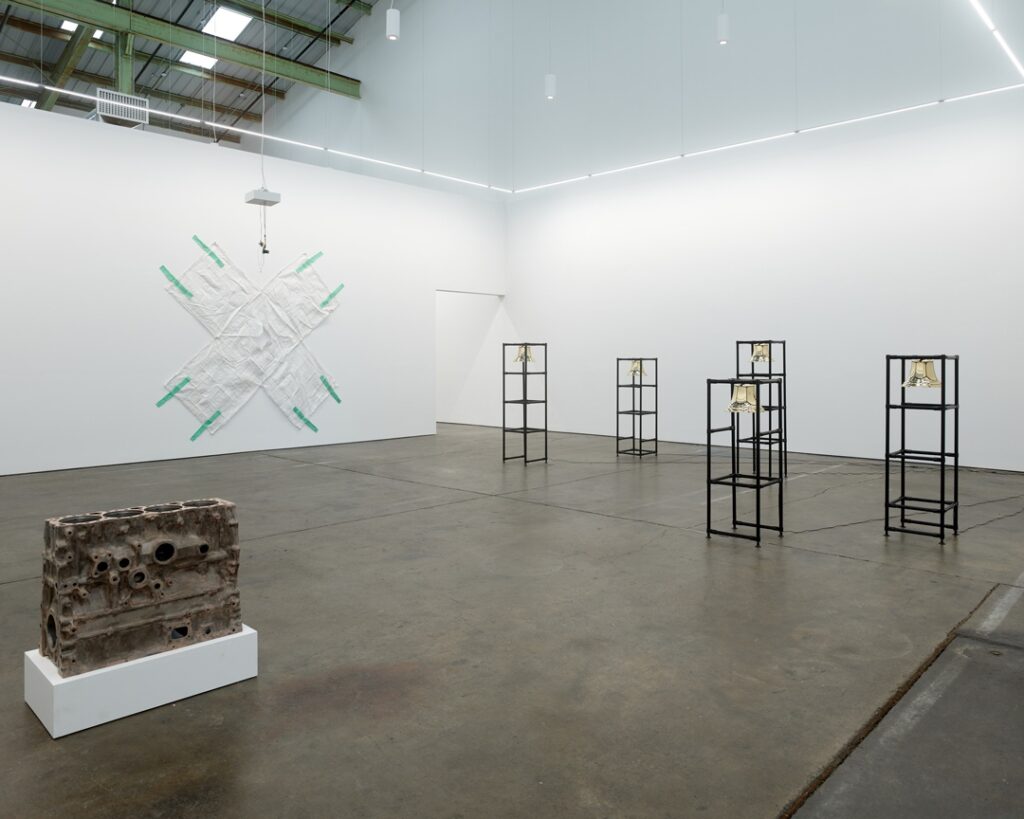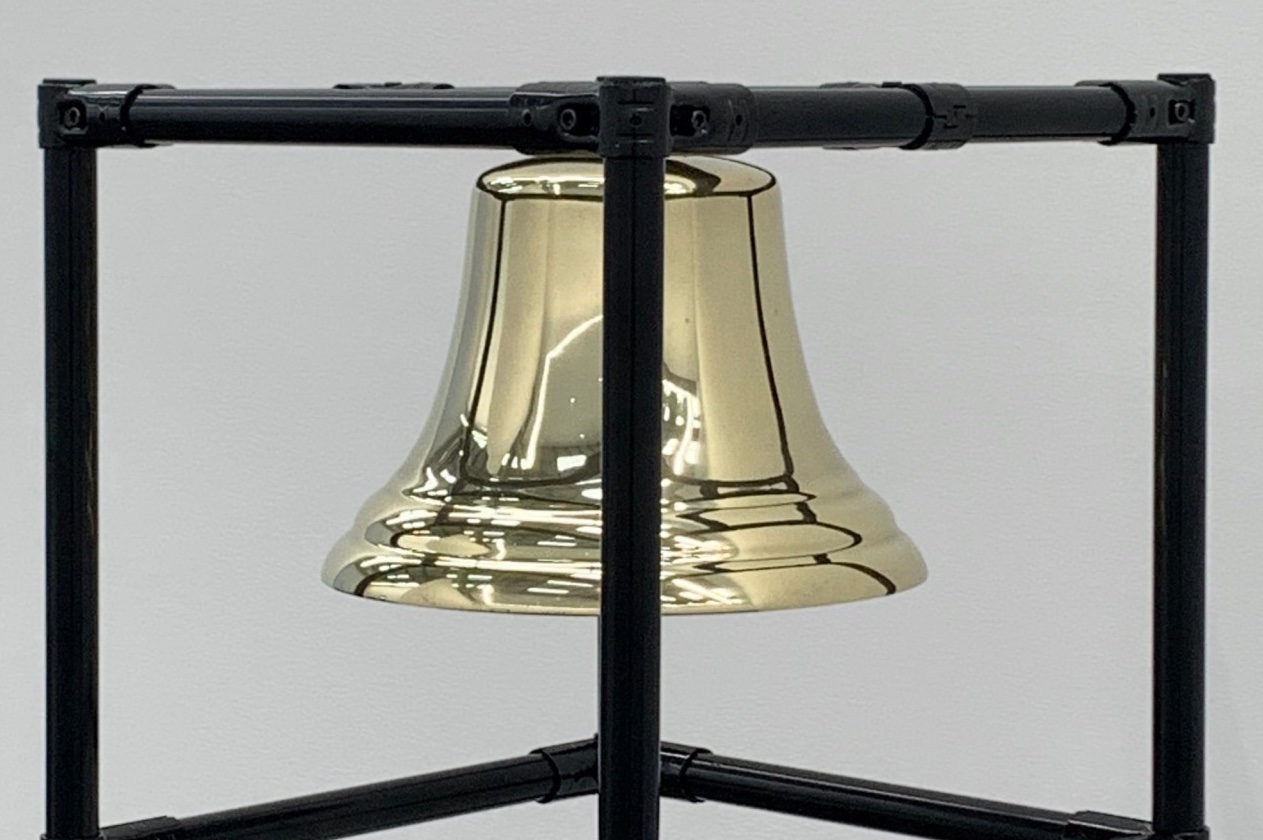While artists have traditionally made sculptures, paintings, etc., out of clay and paint, unmaking or limiting one’s making are also artistic processes that transform ready-mades into strategies of resistance and critique. In New Orleans artists Zarouhie Abdalian’s “We can decide” at Altman Siegel (through April 24 by appointment), the artist presents a poem and a series of industrially manufactured objects in which the artist restrains her making to simple acts like opening the seams of a bag used to distribute food aid and coating an engine block with clay.
While Abdalian’s strategies and materials could potentially challenge the pressing sociopolitical issues addressed in her titles and the press release, her minimal interventions result in rather nebulous poetics that overshadow the connections between content and form.
Easily overlooked as an exhibition support material (like a check-list or press release), the artist offers a simply printed poem for visitors to take. “Rhymes and Reckonings (for Sverdlovsk and Yekaterinburg)” (2019), written in collaboration with Joseph Rosenzweig, is central to parsing Abdalian’s exhibition, and its strongest offering. Abdalian and Rosenzweig structure their poem with the repeated phrasing of “we make…,” followed by social, economic, military, and everyday products or structures. Their list includes those beneficial to humanity, like forests and hospitals; others that will undoubtedly destroy us, like “factories to make war”; and still others that attempt to remedy the errors of our previous making, like “solar farms that float on flooded coal mines.”

Abdalian and Rosenzweig’s poem captures the folly of our constantly escalating system of industrialized production and capitalist structures, which ensnarl us in a cycle of further production. They end their poem with two blunt lines: “We made decisions or not” and “We can decide.” The poem shrewdly suggests that in addition to actively affirming or objecting to these things we made, our silence was also a decision, which by proxy gave tacit consent. Closing on an optimistic note, the poem affirms and incites our right to choose our futures.
Abdalian and Rosenzweig’s poem suggests the ability to change the course of history; the exhibition’s press release indicates that “threnody for the unwilling martyrs” (2021) is a monument to victims of “mass murder” in the United States, or an incitation. In the work, Abdalian’s five shiny brass bells emit a consistent and barely perceptible hum. Simple scaffolds constructed for each bell position them at about eye level or below, imparting the work with an anthropomorphic quality.
While bells are chimed in memorials, the white noise of the bells is too neutral to constitute a threnody, a lament or song of mourning. Additionally, with five bells, the work’s modest scale falls short of embodying the magnitude of what the press release vaguely terms “mass murder” or the title’s suggestion of “unwilling martyrs.” Rather than revealing the relationship between industrialized manufacturing and human causalities, Abdalian’s strategy of restricted making overly generalizes and minimizes gravely serious events, which have been so palpable with the two mass shootings in the last week. Regrettably, Abdalian’s installation does not do justice to so many unnecessary deaths and the affected communities, nor does it feel adequate to compel individuals to act.
As the artist titles her exhibition with the last line of her poem, “We can decide” unfortunately gives viewers too little information about what they are deciding upon. In works that are so sparse, the artist’s decisions are critical and must be laser-sharp. While Adbalian commendably refrains from didacticism, her restraint runs the risk of being withholding, and ultimately maintaining the art world’s elitist bubble.
“We can decide” is on view at Altman Siegel gallery by appointment through April 24. More info here.
Help us save local journalism!
Every tax-deductible donation helps us grow to cover the issues that mean the most to our community. Become a 48 Hills Hero and support the only daily progressive news source in the Bay Area.


